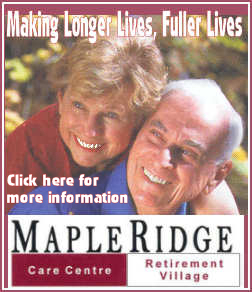|
 But Giuliani does know failure. He lost his first campaign, a 1989 run for New York mayor. But Giuliani does know failure. He lost his first campaign, a 1989 run for New York mayor.
The loss to Democrat David Dinkins provides an early glimpse into the politician Giuliani is today, and foreshadows some of the issues he faces as a presidential candidate. There's a continuum between the pugnacious prosecutor who vowed "to take back our city" from street thugs and corrupt officials in 1989 and the image of tough-minded leadership Giuliani seeks to project now on the national stage.
His campaign skills may be sharper, his political credentials more certain, but "the style is very much the same," says Lee M. Miringoff, the director of the Marist College Institute for Public Opinion. "Rudy Giuliani is not shy about drawing a line in the sand."

Even many New Yorkers may not remember that Giuliani --who recently proclaimed himself "probably one of the four or five best known Americans in the world"
--made his political debut as an underdog whose staff made sure to include guidance on how to pronounce "Giuliani" in suggested remarks for the first President Bush.
Not only was Giuliani a first-time candidate, but he was a Republican in a city where none had won a mayor's race since the 1960s. Then, as now, registered Democrats outnumbered Republicans in the city roughly 5-1.
But if Giuliani was an underdog, he wasn't an unknown.
Bush called him "America's greatest crime-fighter." He gave people "a feeling that he's in charge. ... You could see it even then," says veteran New York political consultant David Garth, who worked on Giuliani's successful mayoral bid in 1993.
Giuliani served two terms and was seen as a formidable opponent for Hillary Rodham Clinton's run for the Senate in 2000, but dropped out after being diagnosed with prostate cancer.

Along with Giuliani's strengths, some lasting vulnerabilities also emerged in 1989. He was seen as equivocating on abortion, an issue that hounds him today as he tries to court conservative voters. The stark racial divide in the 1989 vote foreshadowed tensions in Giuliani's eventual administration
--he sometimes declined even to meet with certain black officeholders --that reverberate today.
New York in 1989 was hardly the glossy boomtown of today. The economy was stumbling in the wake of the 1987 stock market crash. Crime had soared under the scarring influence of crack. The city counted 1,905 homicides in 1989, while it's expected to log fewer than 500 this year.
Deadly attacks on black men by mobs of whites in Queens' Howard Beach neighborhood in 1986 and Brooklyn's Bensonhurst in 1989
--just three weeks before the primary --had inflamed racial feelings and sapped 12-year Democratic incumbent Edward Koch's political muscle. And Dinkins was testing that weak spot by offering New Yorkers a chance to elect their first black mayor.
[to top of second column]
 |
 Giuliani, who trounced Ronald S. Lauder, the cosmetics scion and former U.S. ambassador to Austria, in the GOP primary, presented himself as a City Hall outsider and reformer. He attacked Koch for the city's crime, drugs and corruption
--only to find his opponent would be Dinkins who captured the Democratic primary.
During much of the campaign, polls gave Dinkins double-digit leads over Giuliani.
"People wanted harmony, and people wanted to give David a shot --a person who, they believed, exemplified racial harmony," says Democratic political consultant George Arzt, then Koch's press secretary.
Still, skirmishes on the campaign trail exposed the fault lines lurking beneath the surface. The Dinkins camp took heat for hiring black activist Robert "Sonny" Carson, a convicted kidnapper, to organize a voter drive. A Giuliani ad aimed at Jewish voters that invoked the Rev. Jesse Jackson
--unpopular over his "Hymietown" remark five years earlier --also heightened tensions.

In the final weeks, Dinkins was beset by questions about his financial dealings. When Dinkins denied wrongdoing, Giuliani leaped to underline the controversy
--and his own corruption-buster resume.
"A couple of times, it really got a little ugly," recalls Dinkins campaign manager and later Deputy Mayor Bill Lynch, to whom Dinkins referred calls for comment for this story.
Dinkins won by less than 3 percentage points, one of the slimmest margins in city history. Exit polls showed perhaps 97 percent of black voters and 70 percent of Hispanic voters chose Dinkins, while two-thirds of white voters went with Giuliani.
Political analysts felt Giuliani had focused too much on exploiting his opponent's liabilities, instead of selling voters on his own assets. "It was more like a prosecution than a campaign, and it didn't work," Maurice "Mickey" Carroll, director of the Quinnipiac University Polling Institute and a reporter at the time covering the mayoral race for Newsday.
But Giuiliani, the ambitious prosecutor, also gave voters a preview of the administration he eventually would lead, focusing on taxes, restrained spending and an attack on crime, said Peter Powers, who managed the 1989 campaign, but later served as Giuliani's first deputy mayor and today co-chairs his presidential campaign.

Four years after his defeat, a move savvy, better-positioned Giuliani would triumph over Dinkins. He had used the intervening time to sound out a wide range of city experts and interest groups and line up support from prominent Democrats. He also seemed looser, more approachable, even appearing in a "Seinfeld" episode involving the mayor's race.
Says Carroll: "He learned how to win by losing."
[Associated
Press; By JENNIFER PELTZ]
Copyright 2007 The Associated
Press. All rights reserved. This material may not be published,
broadcast, rewritten or redistributed. |